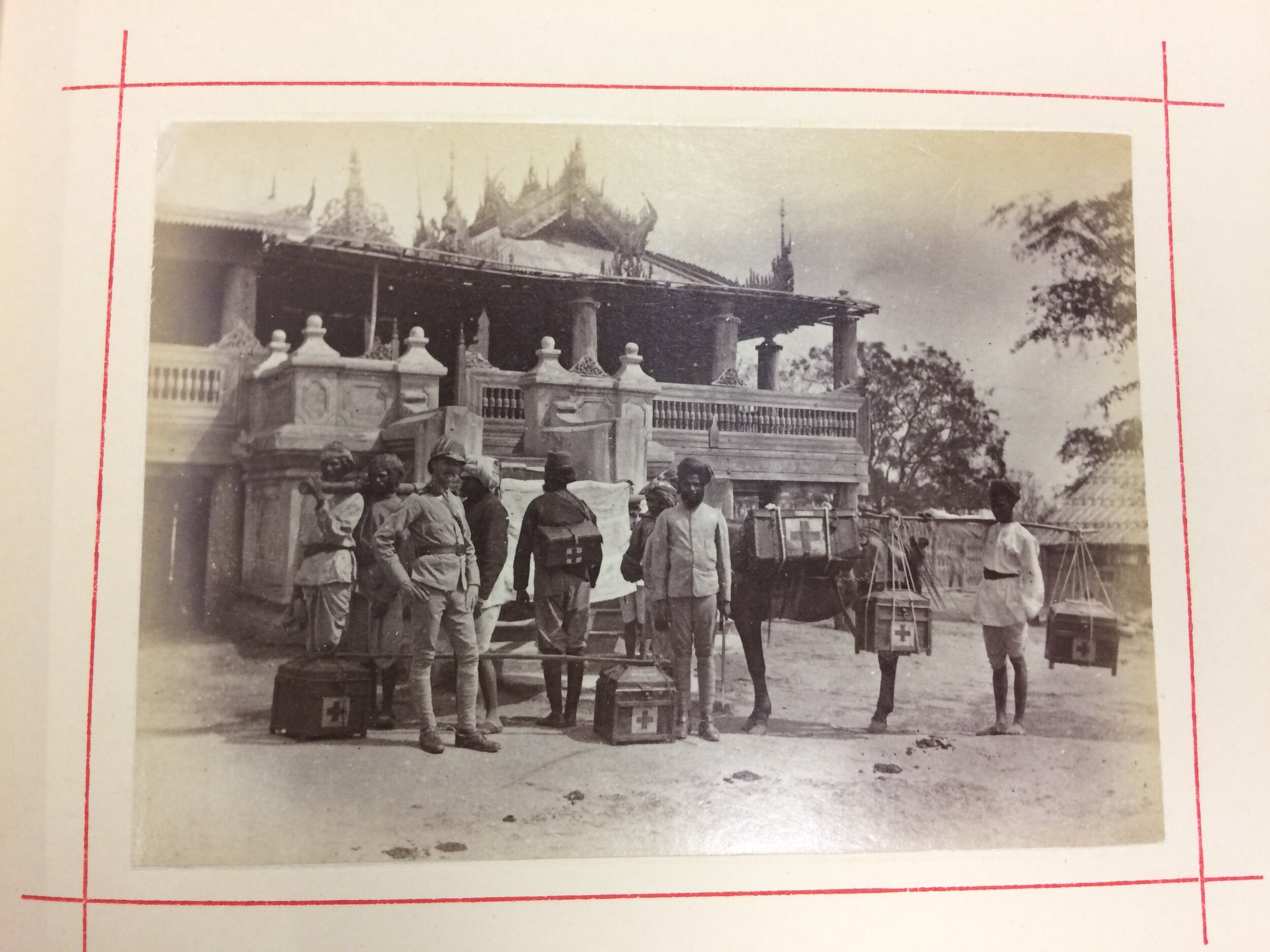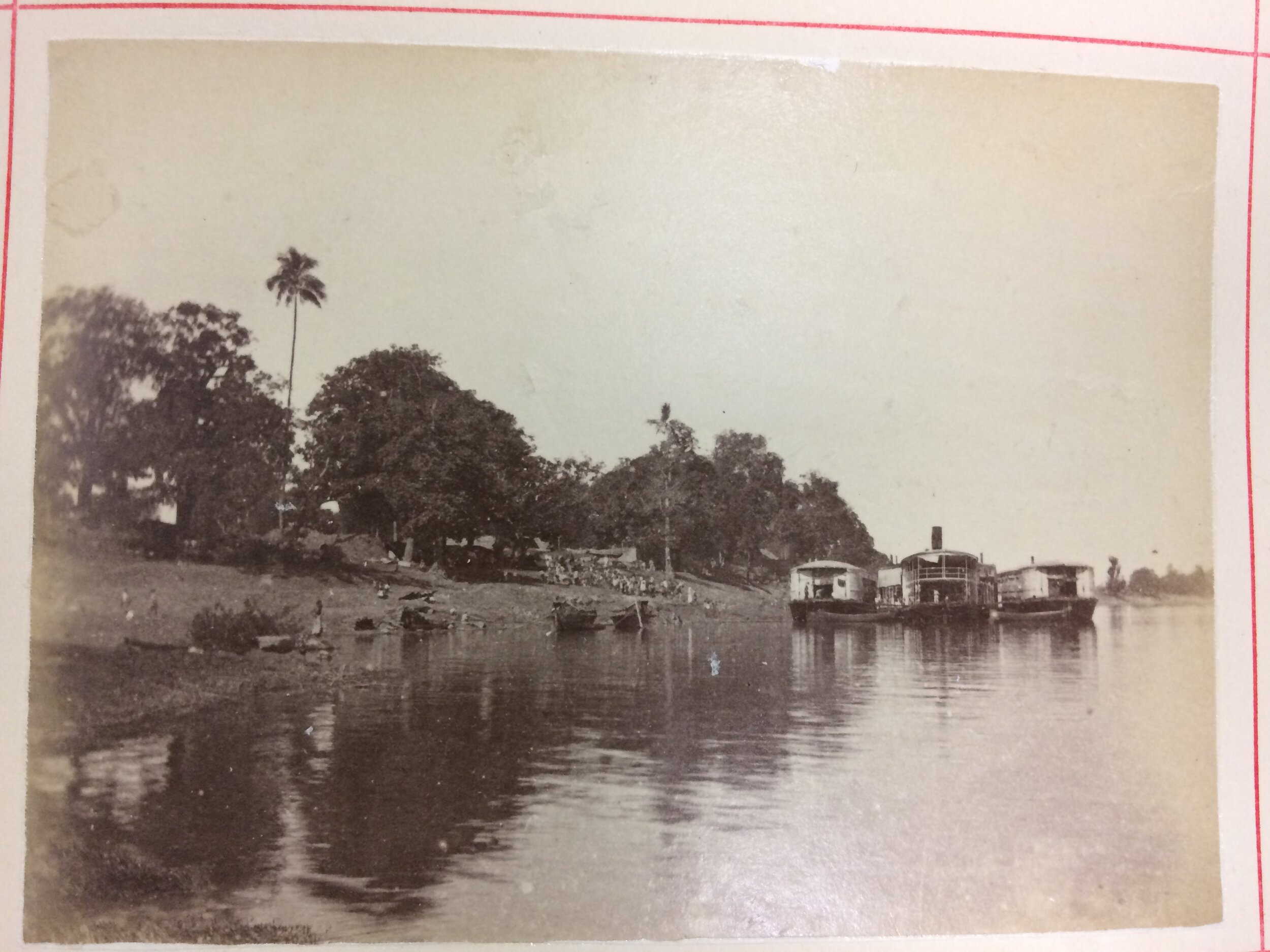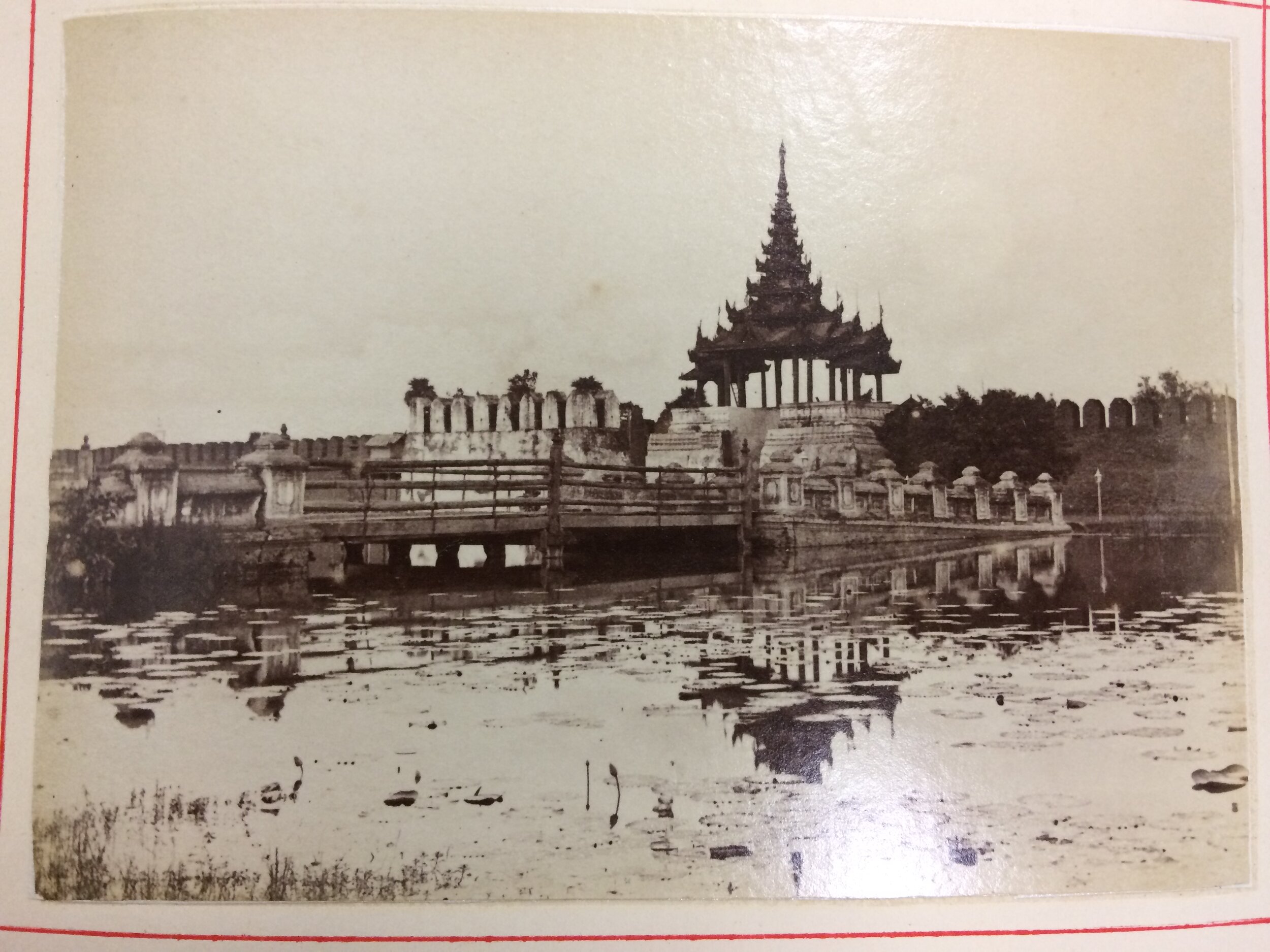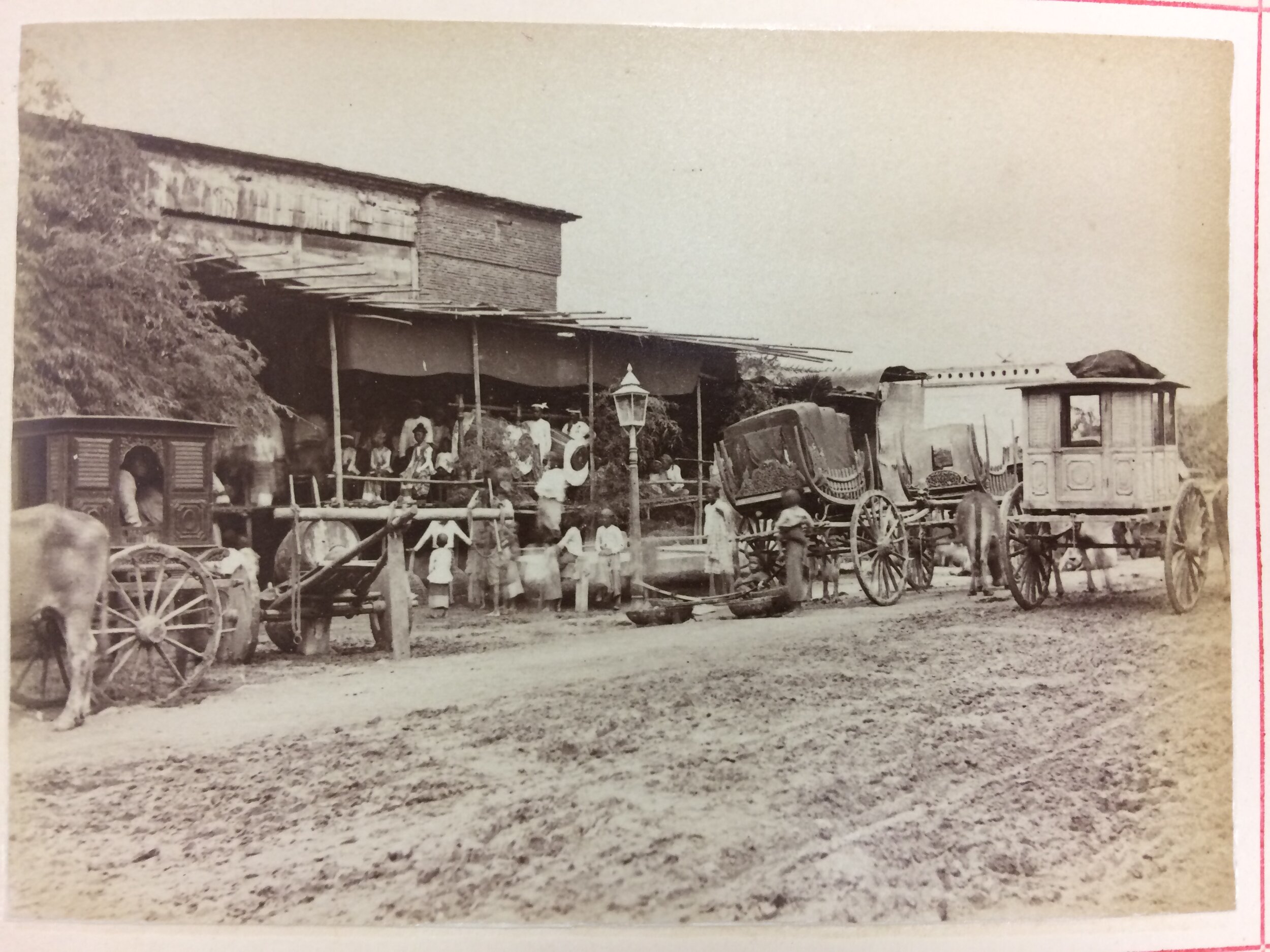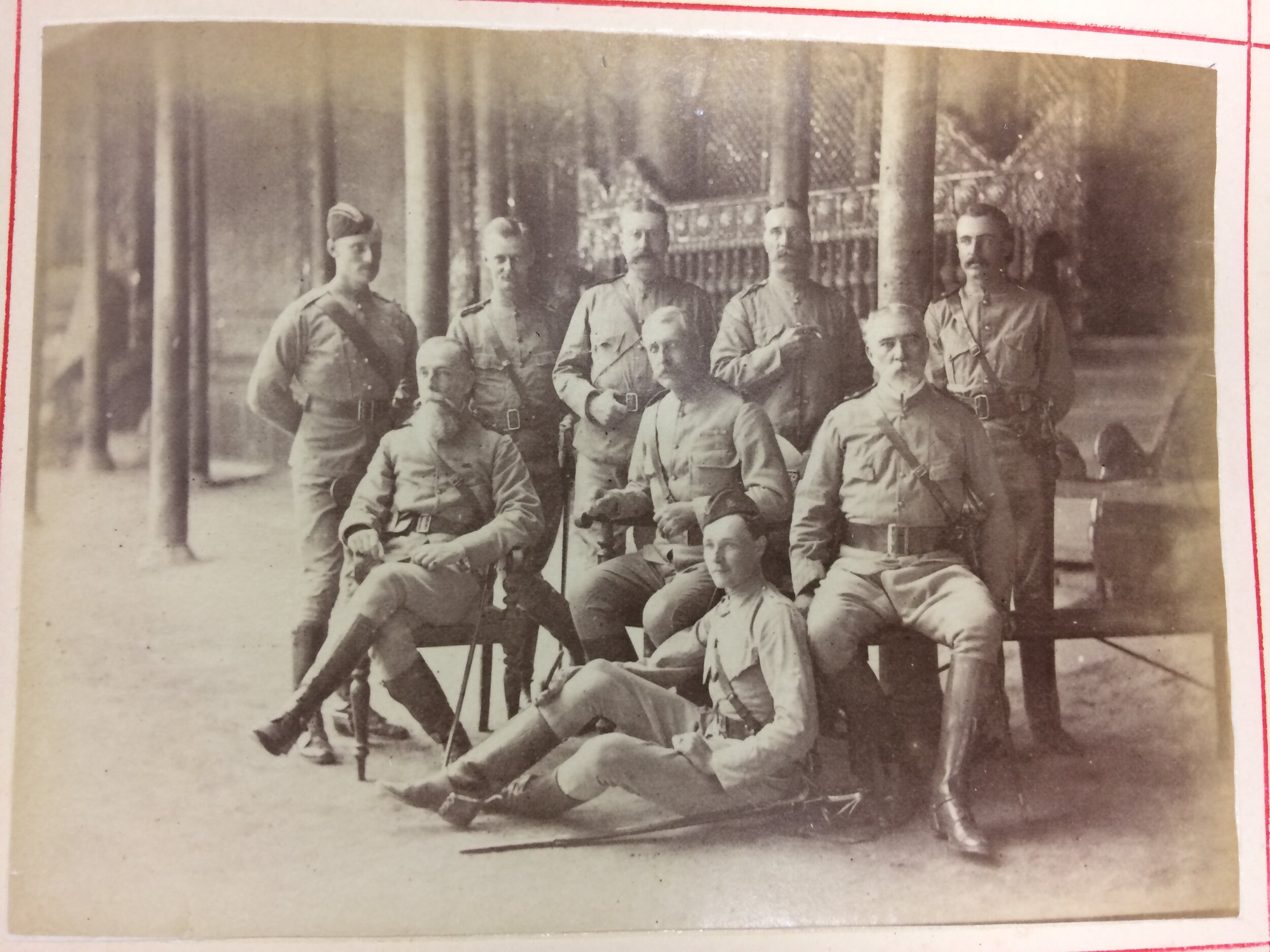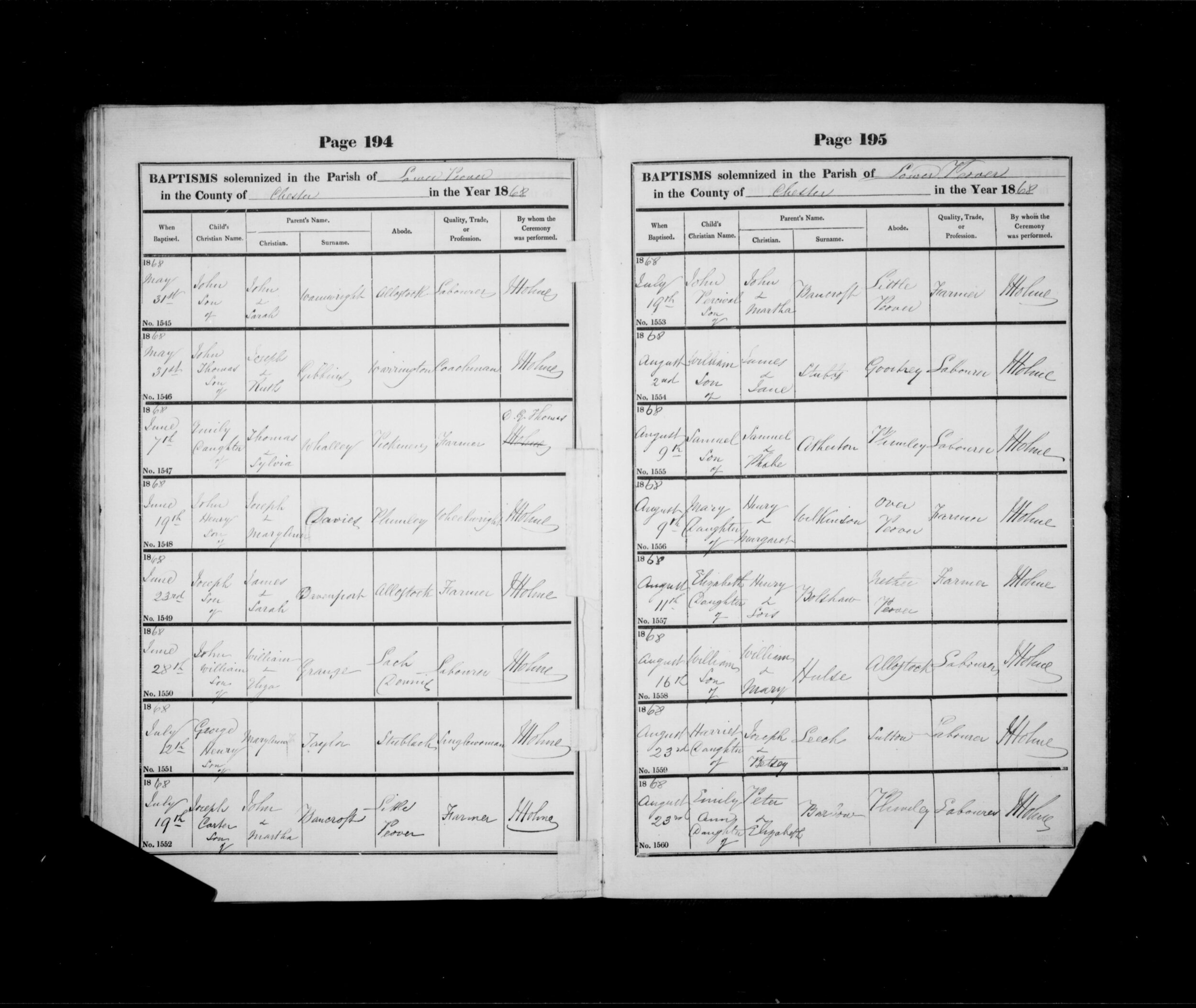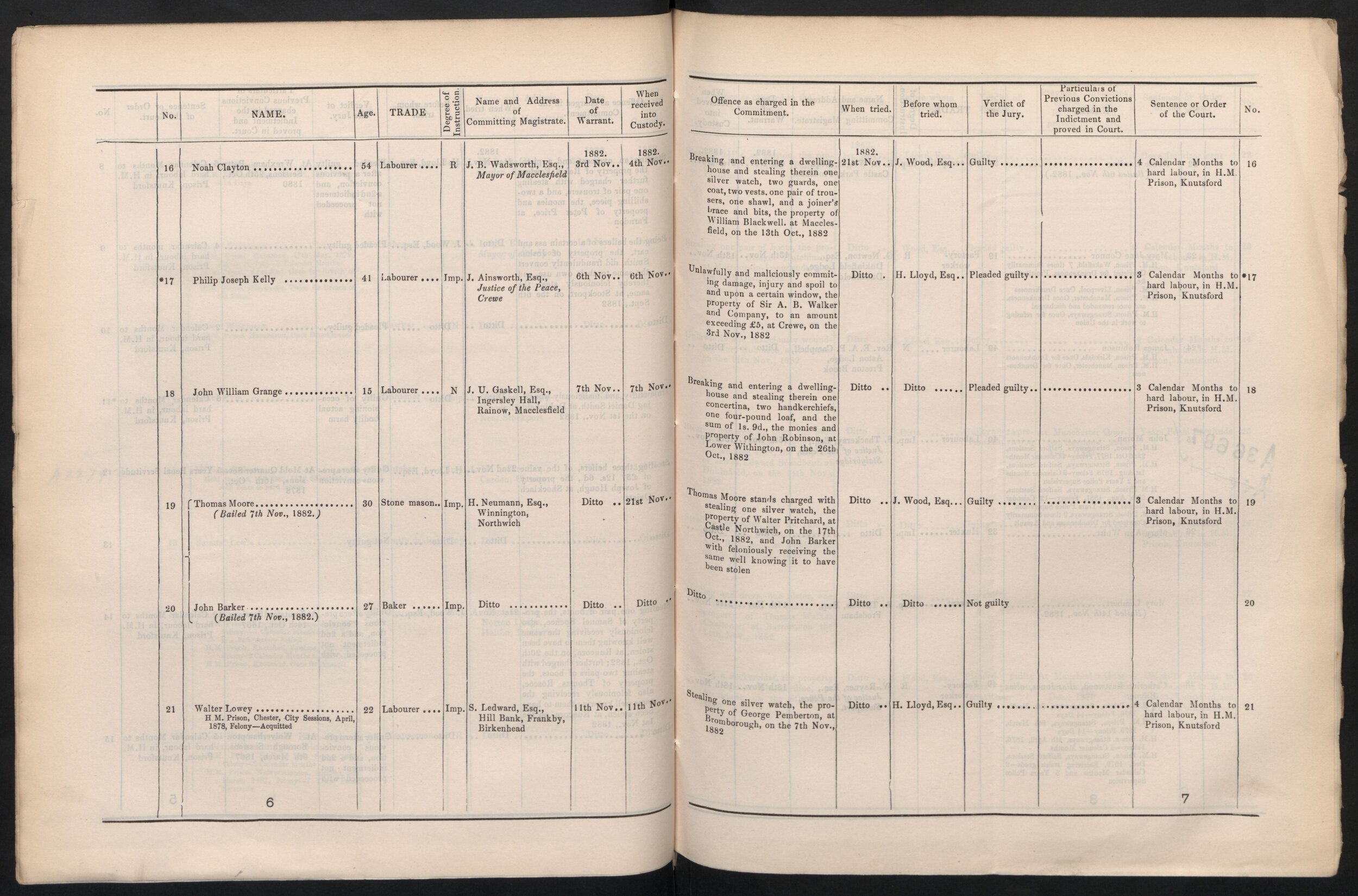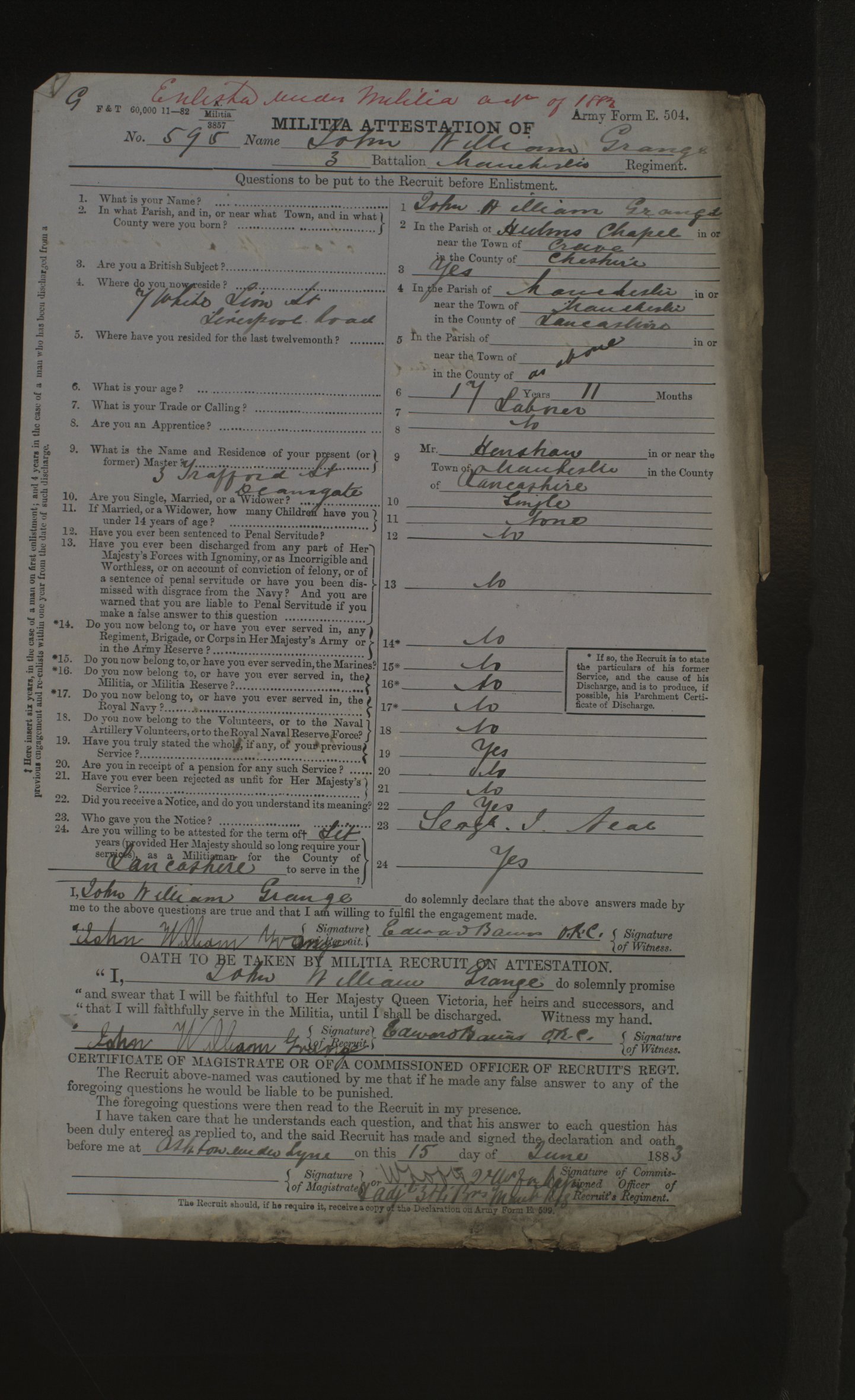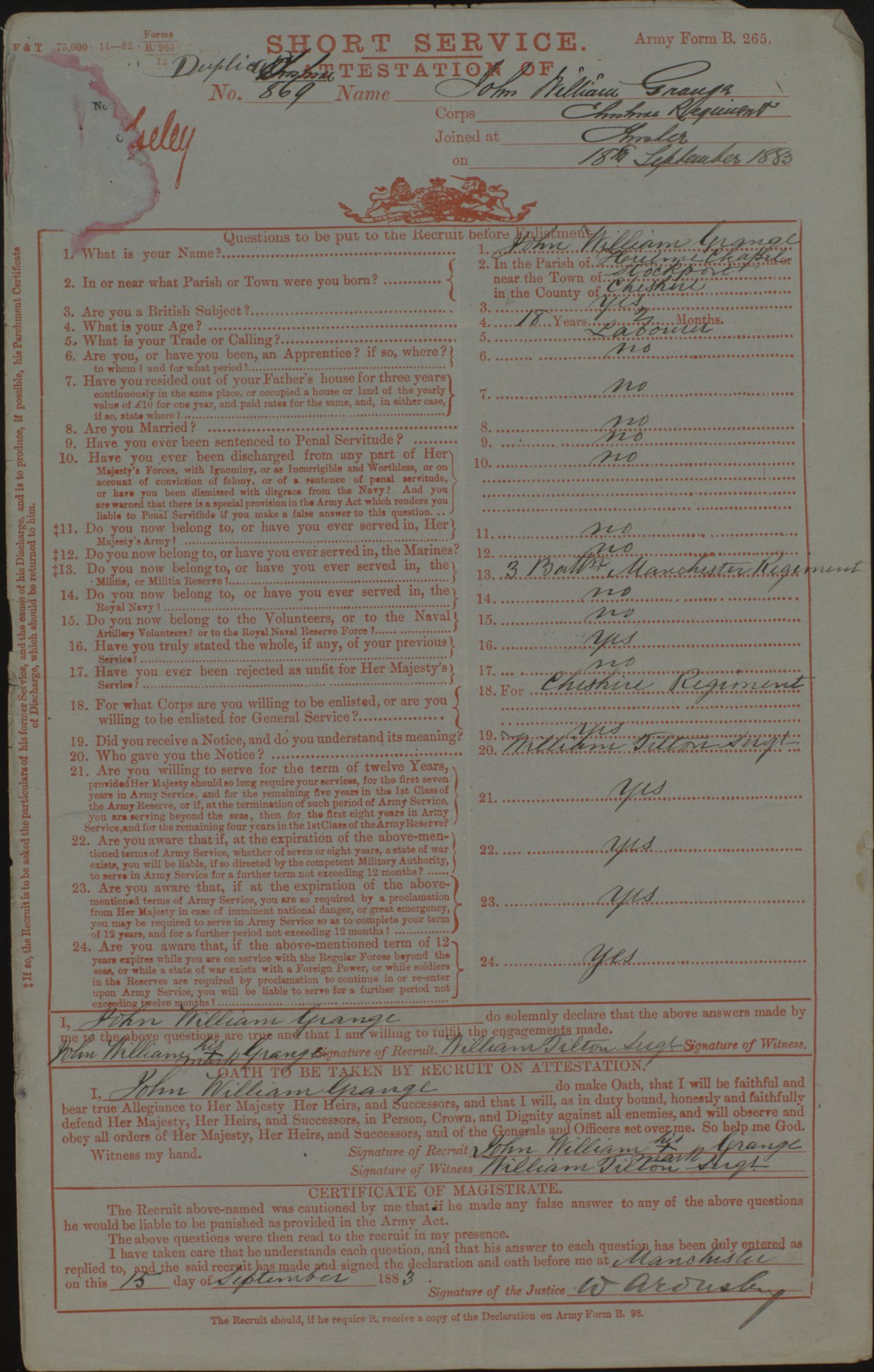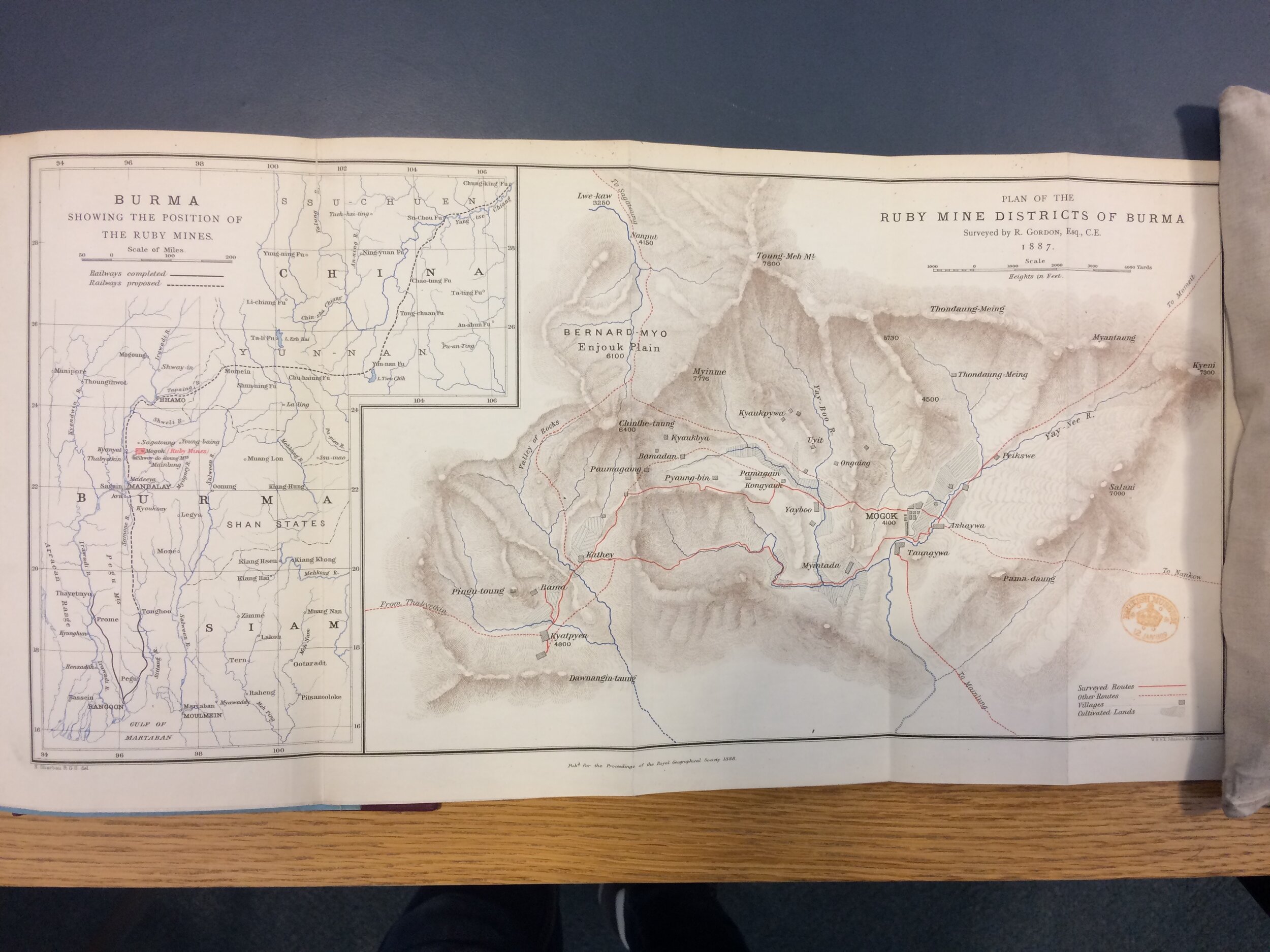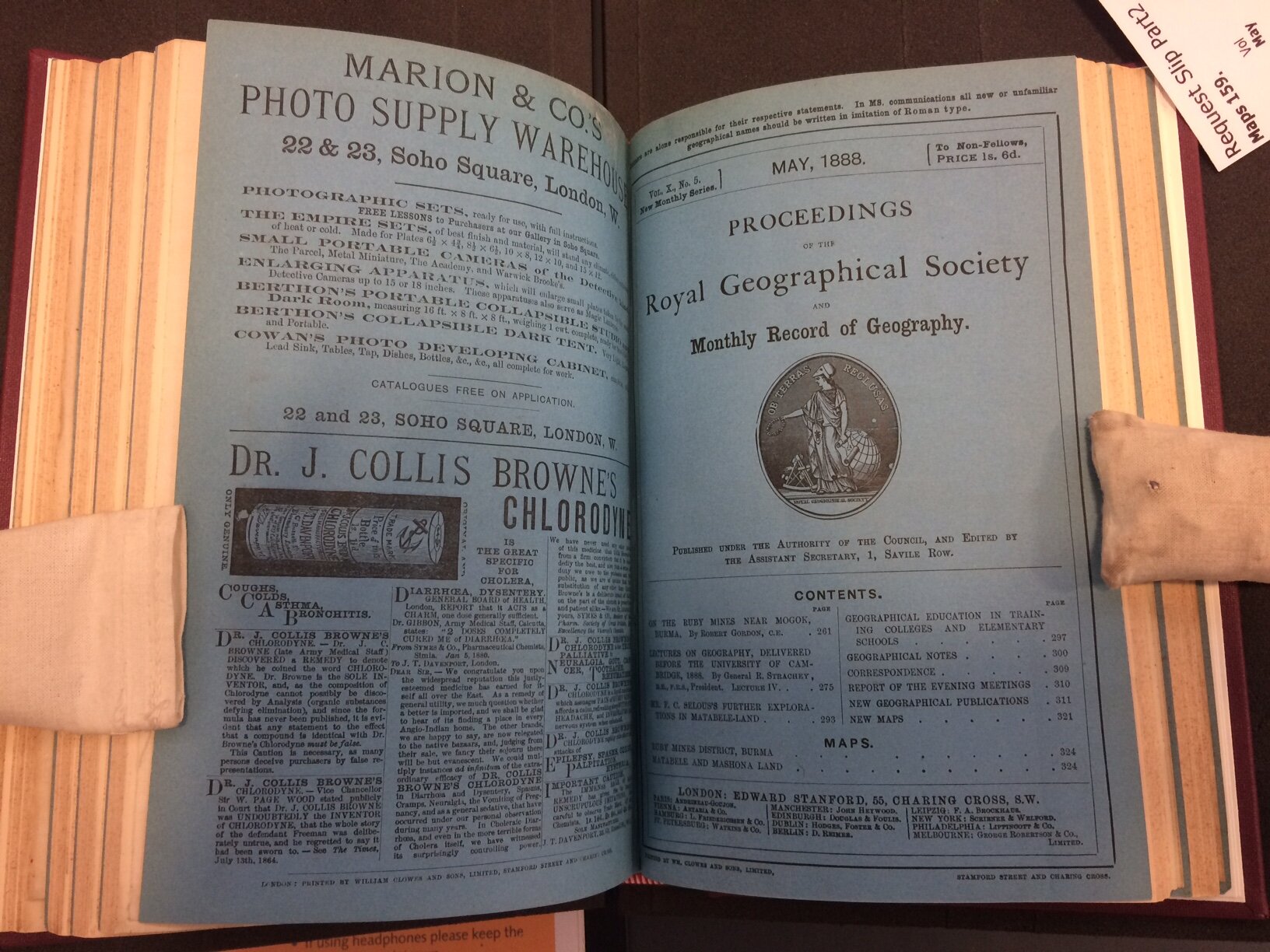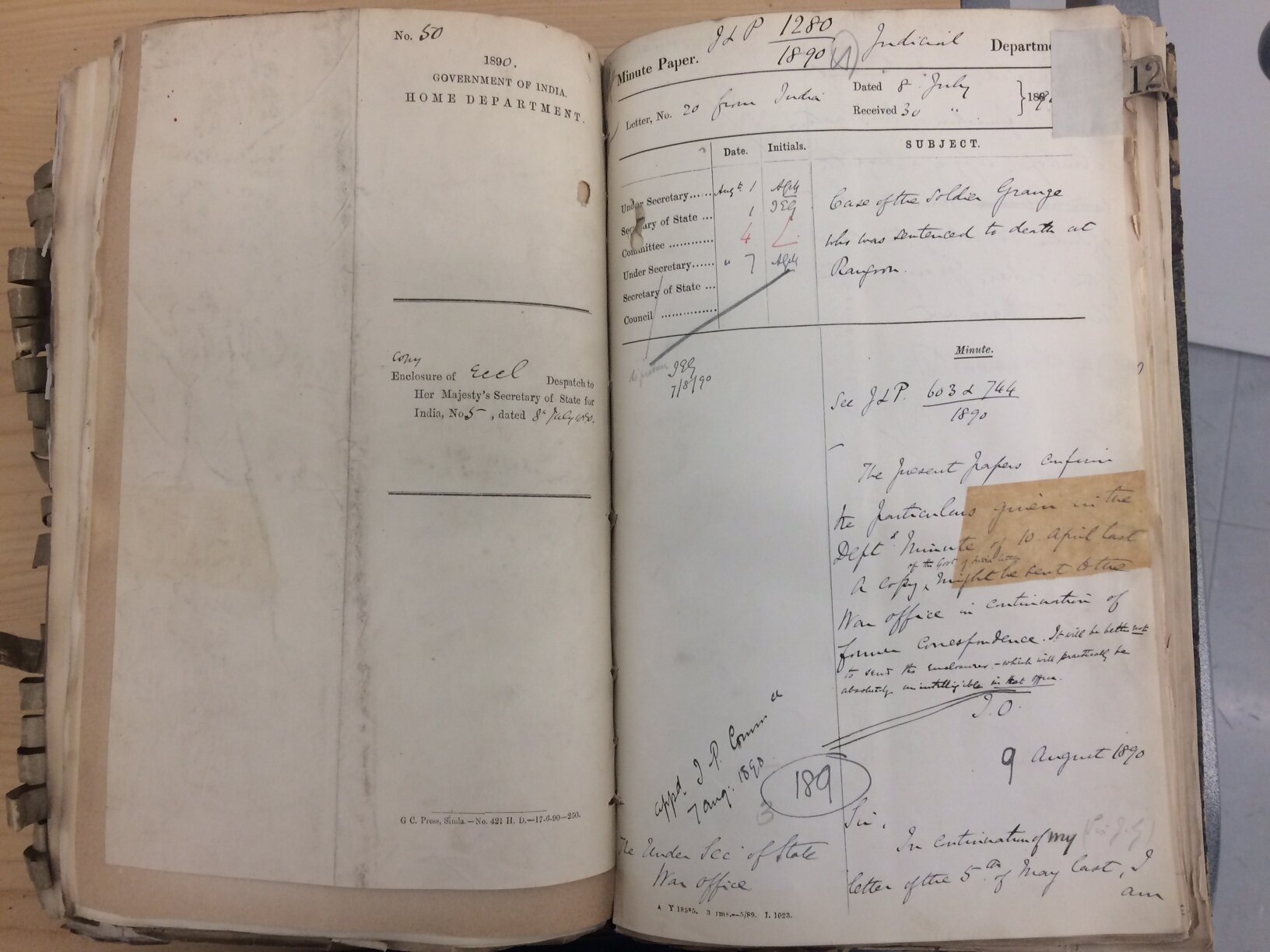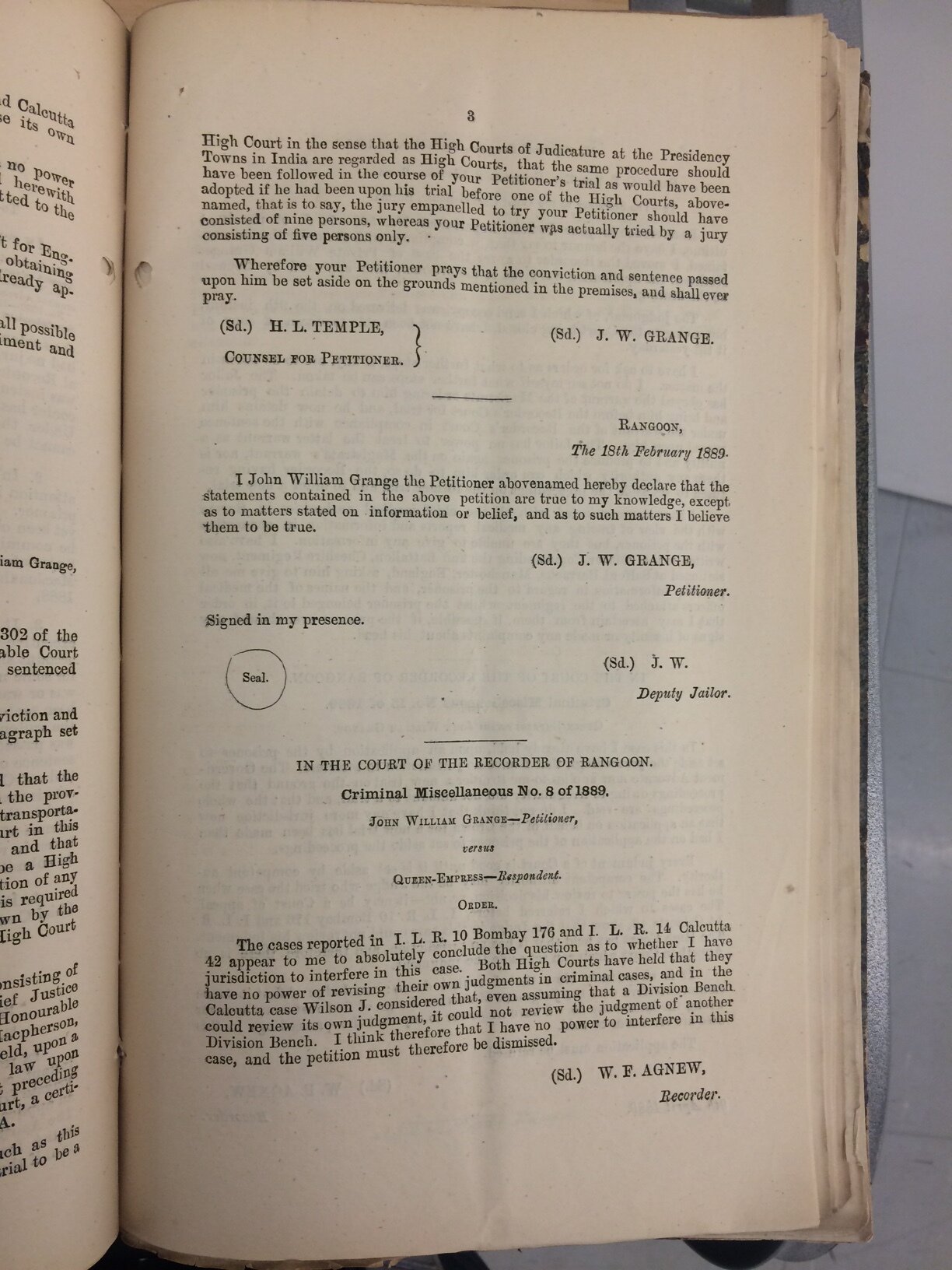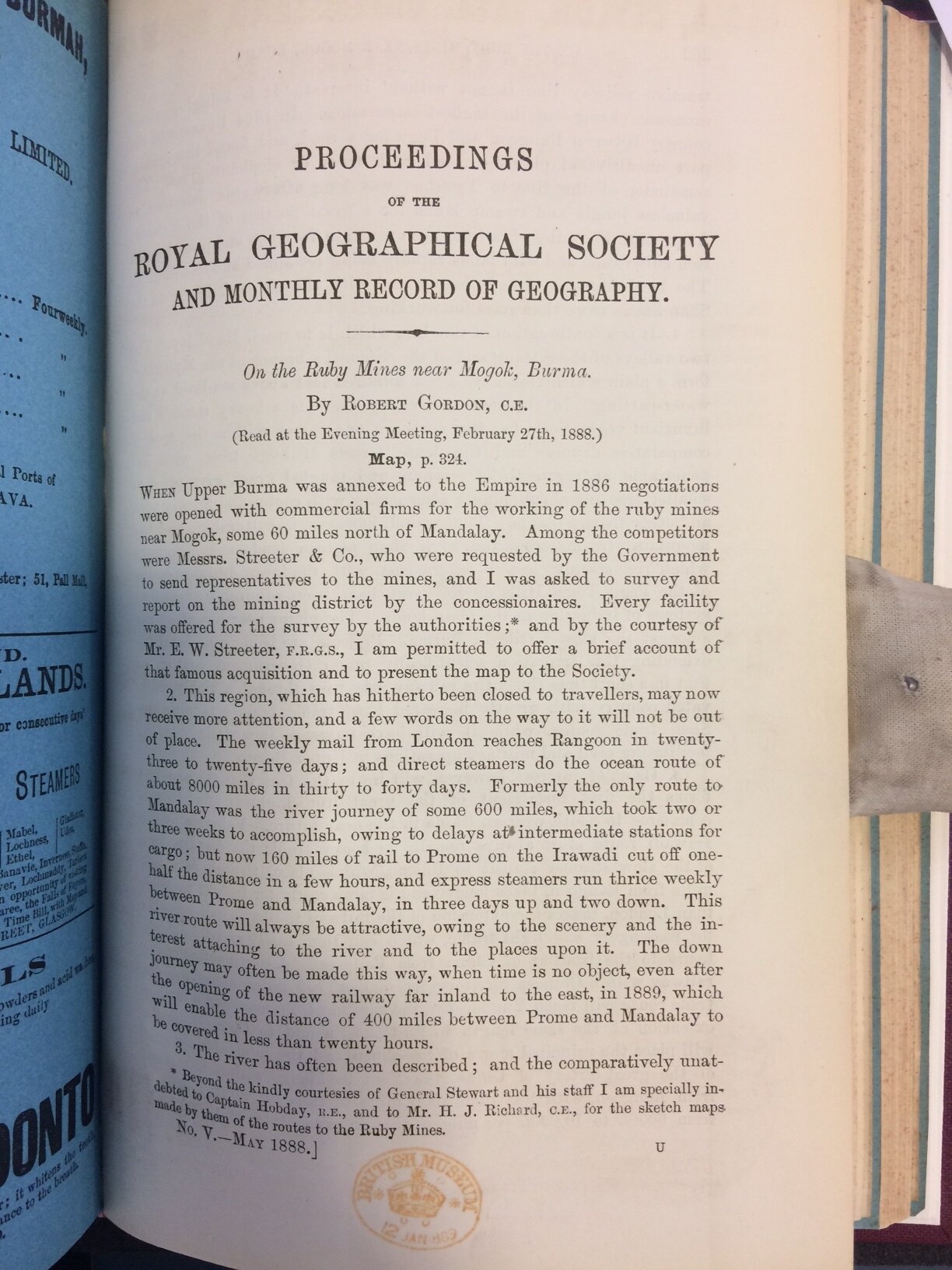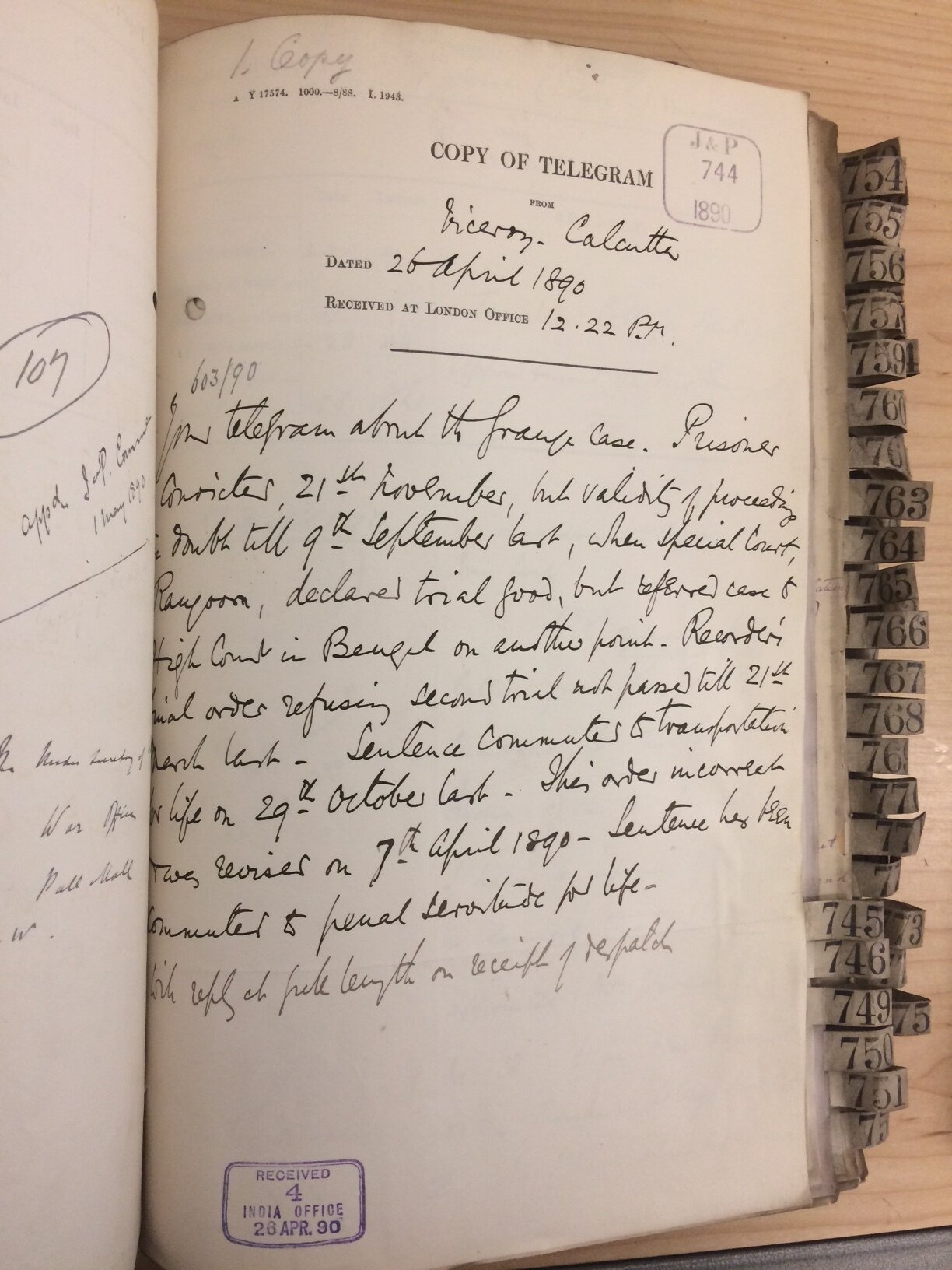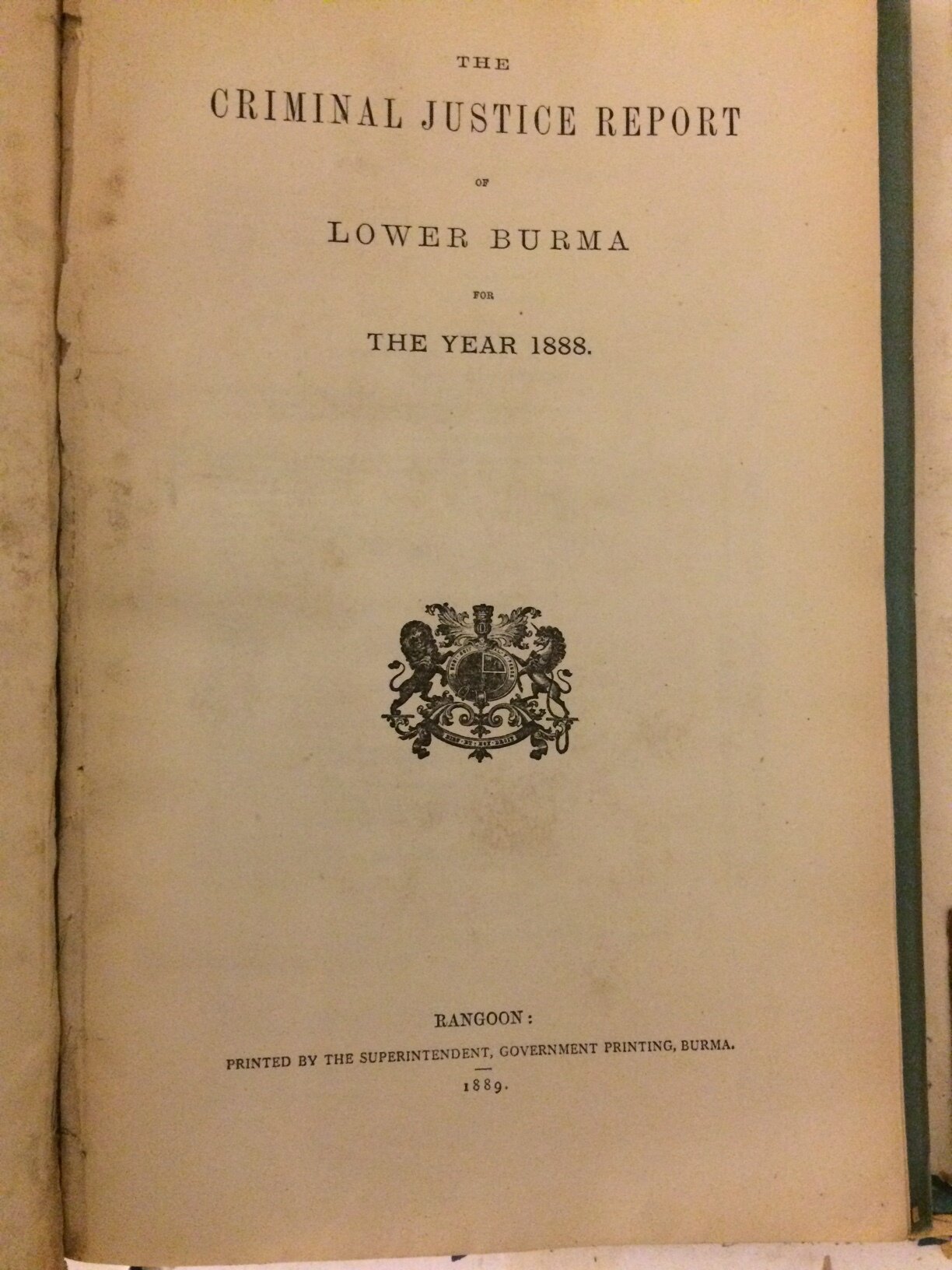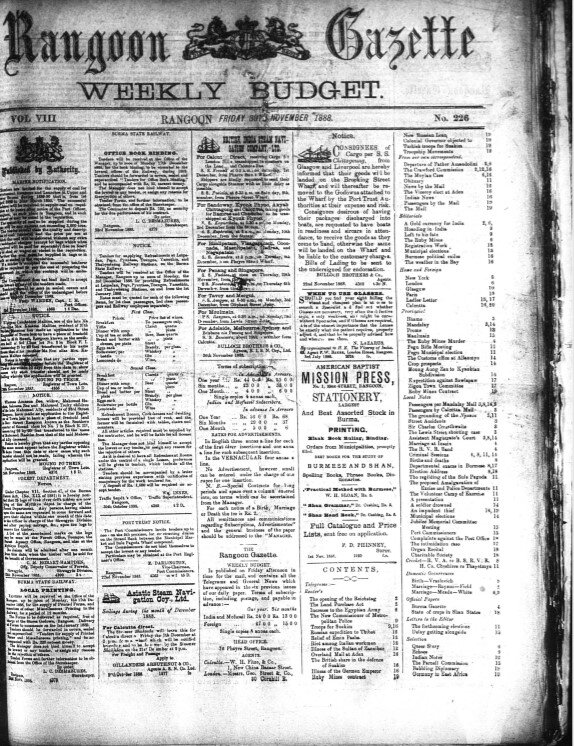My dearest Emily,
I can only apologise for the lack of correspondence of late, business has been extremely intense and the days have flown by in a haze of exploration, research and investigation.
I know you understand completely my darling, but here is an example of the cases we have been fortunate enough to work on of late. An intriguing murder case buried within the fascinating files of the India Office at the Library. I eagerly await your expert advice.
Amongst the Public and Judicial records of the India Office, there are tantalising glimpses into a darker side of life at the edge of Empire. A sinister file recently caught my eye.
The year was 1888, whilst all of England was gripped by the horrors occurring in London’s notorious Whitechapel, the British Army were busy expanding territories throughout Burma. The file related to a British Soldier stationed in a remote outpost of this colonial acquisition.
John William Grange, a Private in the 2nd Battalion Cheshire Regiment had been sentenced to death for the murder of two Burmese women. The murders had been committed in September 1888 in the Ruby Mines District, the trial had taken place in Rangoon in late November. An administration nightmare followed, leaving Grange imprisoned with the death sentence looming for over 18 months.
British prison registers indicated that Grange was previously tried, age 15 for ‘Breaking and entering a dwelling house and stealing… the monies and property of John Robinson at Lower Withington...’ The convict had lied about his age and criminal record when signing up to the army.
Military service records painted a vivid image of Grange. From Cheshire, he was 5’3” with dark hair, grey eyes and two scars above his right eye. Illiterate, he joined the 3rd Battalion Manchester Regiment Militia aged 17. At 18 he progressed to the Cheshire Regiment, serving two years in Europe and two years in India before arriving in Burma, November 1887.
English newspapers were published for British subjects in Burma. From our microfilm collections, the November 30th 1888 edition of the Rangoon Gazette contained a full disclosure of particulars related to…
‘The Ruby Mines Murders’
On September 15th 1888, a mother, daughter and son travelled along a road in a remote area near Bernadmyo when they encountered a British Soldier. The Soldier approached the young girl, grabbed her by the arm and offered her money. Terrified, the girl tried to run to her mother, who swung a large stick at the Soldier. The Soldier shot the mother in the chest. The young girl cried for her Brother to run, he fled into the forest. Another witness heard two gunshots, seven minutes apart. Seven minutes of pure hell for the young girl.
Grange claimed a fit of madness overcame him, he didn’t recall killing just that afterwards they lay dead. He threw the bodies into a ravine and covered them with banana leaves. The truth came out and Grange was arrested for murder.
After almost two years in jail, it was decided to commute the sentence to transportation for life. In 1901 Grange was finally released from Rangoon prison to serve his sentence.
A common location for Penal Servitude was Kālā Pānī on the Andaman Islands, a nightmarish dystopian prison. Escape was not an option, though many took their chances due to the unimaginable cruelty of the confinement. Torture, starvation, medical testing and murder were commonplace. If Grange saw out his days at Kālā Pānī, he probably wished for the original sentence. I assume that John William Grange died in prison – or does an Archaeofam associate know otherwise?
The story of Private Grange serves as a dark reminder of all too common 19th century atrocities. 1888 will forever be synonymous with the murder and bloodshed of women. John William Grange is another thread in that tapestry of terror… there were undoubtedly many more.
Craig Campbell (Archaeodad)
Curatorial Support Officer
India Office Records
The British Library
Further reading
IOR/L/PJ/6/274, File 603 Case of a European soldier named Grange tried at Rangoon in November 1888 for murder of two Burmese women. 2 Apr 1890
IOR/L/PJ/6/276, File 744 The case of soldier Grange; convicted of murder by the Recorder of Rangoon; sentence commuted to penal servitude for life. 26 Apr 1890
IOR/L/PJ/6/281, File 1280 Case of John William Grange, a British soldier sentenced to death for the murder of two women in Upper Burma. 8 Jul 1890
Maps 159 Plan of the Ruby Mine Districts of Burma. Surveyed by R. Gordon ... 1887. (Burma, showing the position of the Ruby Mines.) H. Sharbau del. London, May 1888.
Asia, Pacific & Africa IOR/V/24/2240 Criminal justice report of Lower Burma. Rangoon: Judicial Department, 1885-1889.
Microform. MFM.MC1198 Rangoon Gazette Weekly Budget. 1887 to 1940. Burma Rangoon. General Reference Collection 1887-1900, 1906-1928
Microform. MFM.MC1160 The Englishman. 1874 to 1934. India Calcutta. General Reference Collection 1874-1896; 1908-1934
Find My Past https://www.findmypast.co.uk/
(While within British Library you have access to certain records through a partnership with Findmypast)

